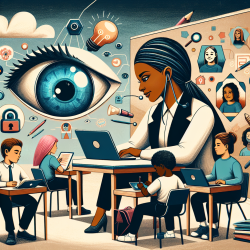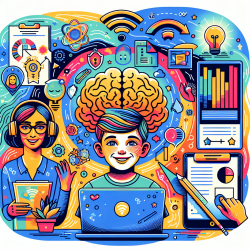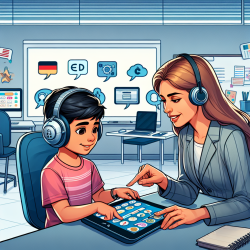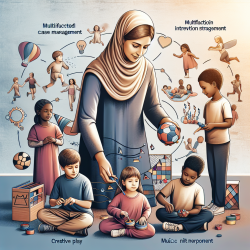The increasing prevalence of Autism Spectrum Disorder (ASD) has necessitated innovative and accessible treatment approaches. A recent study titled Development and Application of a Metaverse-Based Social Skills Training Program for Children With Autism Spectrum Disorder to Improve Social Interaction: Protocol for a Randomized Controlled Trial explores the efficacy of a metaverse-based social skills training program aimed at improving social interaction in children with ASD.
ASD is characterized by challenges in social communication and repetitive behaviors, which can lead to social isolation. Traditional interventions often require in-person sessions, which can be costly and logistically challenging, especially during events like the COVID-19 pandemic. This study leverages the metaverse—a virtual reality space where users can interact with a computer-generated environment and other users—to provide an accessible and cost-effective alternative.
The study involved children aged 7-12 years diagnosed with ASD, who participated in a metaverse-based social skills training program. The program, modeled after the Program for the Education and Enrichment of Relational Skills (PEERS), was designed to improve social interaction skills through structured sessions conducted in a virtual environment. The treatment group engaged in weekly 60-minute sessions over four weeks, using wearable devices to collect real-time biometric data to monitor emotional changes.
Key findings from the study include:
- Significant improvement in social skills and interaction abilities among participants in the treatment group compared to the control group.
- Increased accessibility and reduced costs associated with the metaverse-based program, making it a viable option for families with limited access to traditional therapies.
- Real-time biometric data collection provided insights into participants' emotional states, allowing for early intervention in cases of anxiety or stress.
These findings suggest that metaverse-based social skills training programs can be an effective and scalable solution for improving social interaction skills in children with ASD. For practitioners, this study highlights the importance of integrating digital technology into therapeutic interventions to enhance accessibility and outcomes.
To implement these findings in your practice, consider the following steps:
- Explore metaverse platforms like Roblox or Minecraft, which offer interactive environments suitable for social skills training.
- Incorporate wearable devices to monitor real-time biometric data, providing insights into participants' emotional states and allowing for timely interventions.
- Adopt a structured program like PEERS, which has been validated for its effectiveness in improving social skills in children with ASD.
Further research is encouraged to validate these findings across diverse populations and settings. The integration of metaverse-based programs into standard therapeutic practices holds promise for transforming the landscape of ASD interventions.
To read the original research paper, please follow this link: Development and Application of a Metaverse-Based Social Skills Training Program for Children With Autism Spectrum Disorder to Improve Social Interaction: Protocol for a Randomized Controlled Trial.










